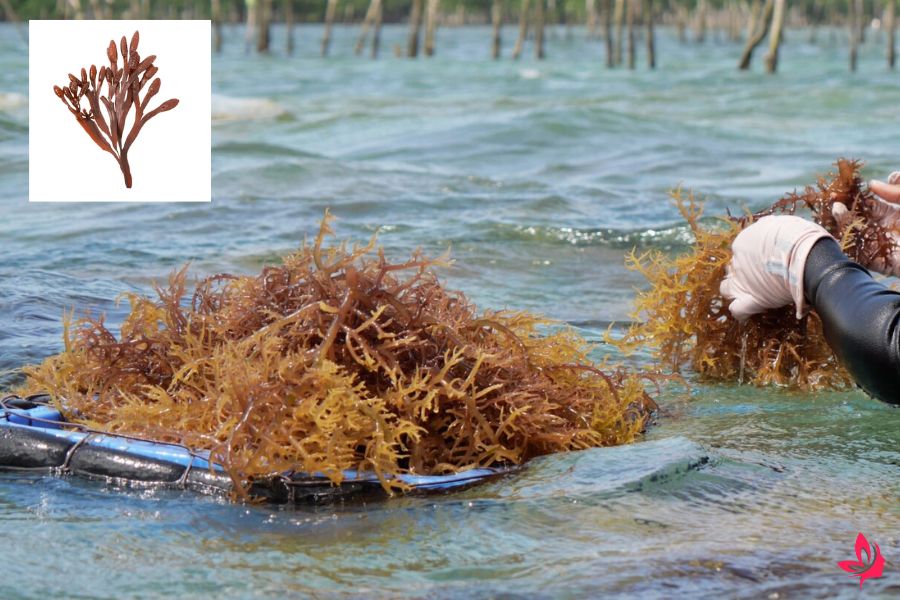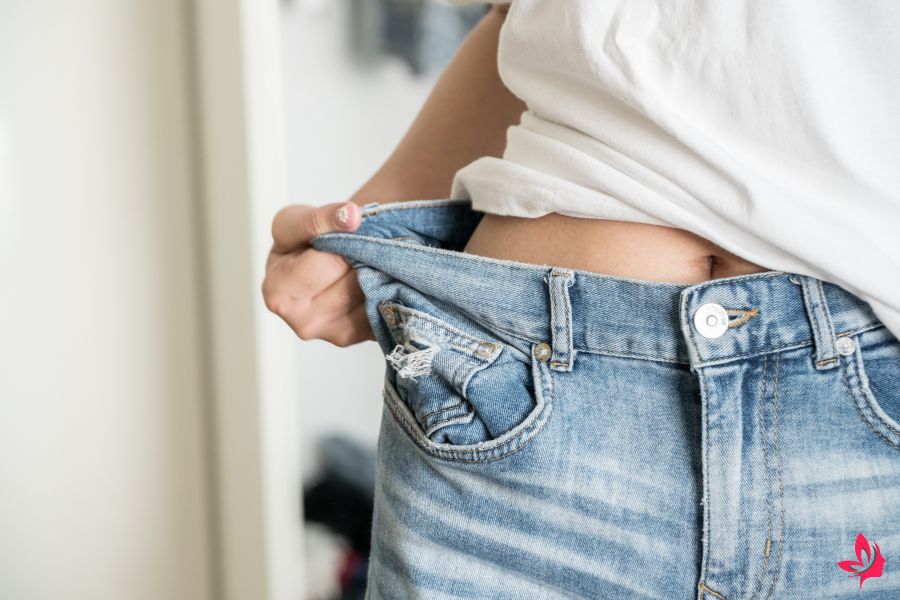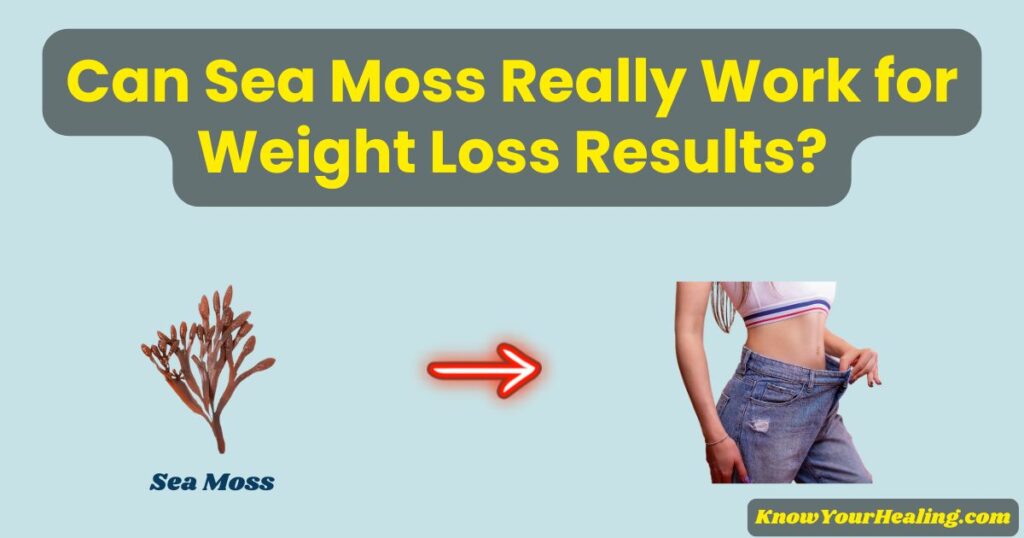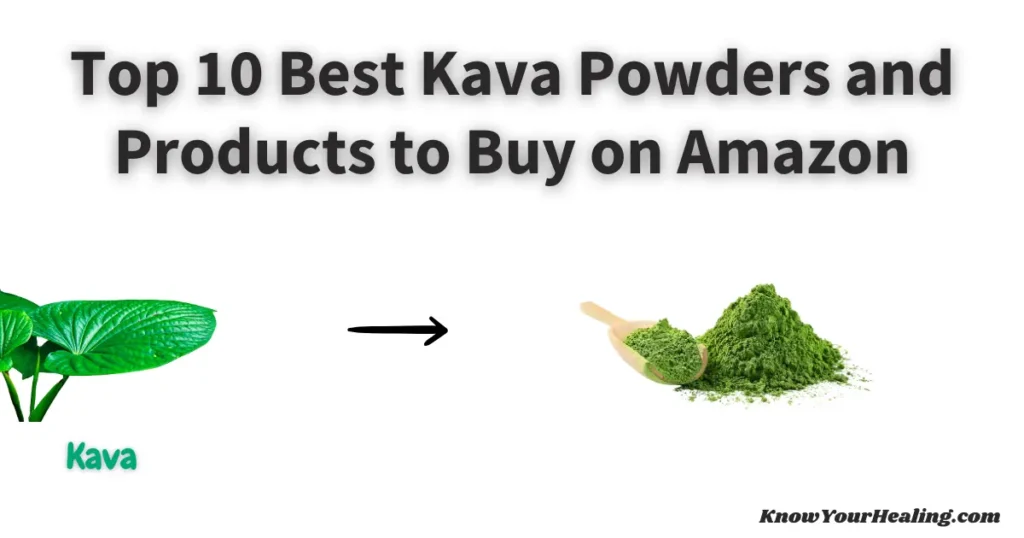Sea moss weight loss results are everywhere lately. Wellness fans and influencers say this ocean superfood can boost metabolism, curb appetite, and even help burn fat—but let’s be honest, the science is a bit more complicated.
Sea moss does provide beneficial nutrients, such as iodine and fiber, which may support healthy weight management, but the evidence for dramatic results is not yet conclusive.
Most research indicates that the effects are mild, primarily affecting appetite control and possibly providing some metabolic support, rather than significant fat loss.
Understanding Sea Moss and Its Nutritional Profile

Sea moss contains 92 essential minerals and delivers real nutritional value as a type of red algae. Its iodine content supports thyroid function, but excessive intake can be risky, especially when heavy metals are also present.
What Is Sea Moss? Breaking Down Chondrus Crispus
Sea moss, or Chondrus crispus, is a type of red algae that grows on rocky Atlantic coastlines. It thrives in Ireland’s cold waters, which is why it is commonly referred to as Irish sea moss.
The plant attaches to underwater rocks and absorbs minerals from seawater. Coastal communities have eaten sea moss for centuries in North America and Europe.
Irish moss looks flat and fan-shaped, with a purple-red color when fresh. Once dried, it gets lighter and pretty brittle.
This seaweed contains natural carrageenan, which turns into a gel when mixed with water. That’s why it’s so popular for making gel supplements and thickening recipes.
Sea moss stands out from other marine plants because it really concentrates minerals from the ocean. Most of its benefits come from this mineral absorption.
Essential Minerals and Nutritional Value in Sea Moss
Sea moss offers minerals such as iodine, calcium, potassium, and magnesium, albeit in small amounts. You’ll also get trace amounts of iron, zinc, and selenium, all of which play a role in overall health.
Key nutrients in sea moss include:
- Iodine (varies a lot depending on origin)
- Calcium for bones
- Potassium for heart health
- Iron for blood
- Vitamin C for immune support
The nutritional punch you get really depends on where the sea moss was harvested and how it’s processed. Sea moss is rich in soluble fiber, which can support your gut health and maintain a balanced microbiome.
Raw sea moss has some B vitamins and a few essential amino acids, but honestly, it’s not a big protein source. If you’re looking for protein, there are better options out there.
Sea Moss Gel vs. Sea Moss Supplements: Which Form Is Best?
Sea moss gel is the most natural option, as it preserves the fiber intact and may help with weight management. The gel also keeps the carrageenan, which can help you feel fuller.
Sea moss gel benefits:
- Keeps natural fiber structure
- Easy to blend into smoothies or desserts
- Adds a gel texture to recipes
- Can help with regularity
Capsule supplements are highly convenient, allowing you to control the dose. They don’t taste like much, but some nutrients might get lost during processing.
Pills make it easier to track iodine intake, so you don’t overdo it. Still, the gel may help your body absorb specific water-soluble nutrients more effectively.
The Iodine Content Debate: How Much Iodine Is Too Much?
Iodine levels in sea moss can swing wildly depending on where and how it’s grown. Some batches contain so much iodine that they exceed the safe daily limits for thyroid health.
Daily iodine recommendations:
- Adults: 150 mcg per day
- Pregnant women: 220 mcg per day
- Upper safe limit: 1,100 mcg per day
Too much iodine can mess with your thyroid and throw off your hormones. If you have thyroid issues, it’s smart to talk to your healthcare provider before adding sea moss to your routine.
Excessive iodine intake can lead to thyroid dysfunction and may interact with thyroid medications. If you already take iodine supplements, don’t double up with sea moss.
Safety Concerns: Heavy Metals and Toxic Metals in Sea Moss
Sea moss soaks up heavy metals from polluted water, and that’s a real concern. Lead, mercury, cadmium, and arsenic can accumulate in plant tissue.
Safety considerations include:
- Where the sea moss was grown
- Whether it’s tested for contaminants
- How it’s processed and stored
- Possible interactions with blood thinners
Always choose products from reputable brands that have been tested for heavy metals. Some people may experience allergic reactions, so be cautious if you’re sensitive.
If you have health conditions or take medication, talk to a registered dietitian before trying sea moss. Some people experience digestive upset if they overeat initially.
The Science Behind Sea Moss and Weight Management

Sea moss weight loss results largely depend on how it may impact metabolism, satiety, and gut health.
Research suggests that compounds in this red algae could help with weight management by providing fiber, supporting metabolism, and improving digestion.
How Soluble Fiber Supports Weight Loss and Digestive Health
The soluble fiber in sea moss turns into a gel in your gut. This helps you feel full for longer and can reduce the amount you eat during the day.
Studies show that soluble fiber slows down how fast your stomach empties, sending those “I’m full” signals to your brain. It also helps keep you regular and supports a healthy gut.
Just one tablespoon of sea moss gel gives you about 0.5-1 gram of fiber. Use it regularly, and it contributes to your daily fiber needs.
The gel supports the growth of beneficial bacteria in your gut, which can play a significant role in weight control and digestion.
Getting enough fiber helps steady your blood sugar and can cut cravings for junk food. That’s a plus if you’re trying to manage your weight over the long haul.
Sea Moss Benefits for Metabolism and Energy Expenditure
Irish moss contains a good amount of iodine, which is essential for your thyroid. The thyroid controls how fast your body burns calories and uses energy.
Sea moss supplements can give you around 47 micrograms of iodine per gram of dried seaweed. However, too much iodine is not beneficial for your thyroid.
If you’re mildly iodine-deficient, sea moss might help boost your metabolic rate. That could help with energy and maybe even fat burning, but the effect isn’t huge.
Other minerals, such as magnesium, potassium, and iron, help your cells produce energy. These nutrients help your metabolism function optimally.
Individuals with thyroid issues should consult their doctor before using sea moss. Too much can mess with hormones and medications.
What Animal Studies and Human Studies Reveal
Some animal studies suggest certain seaweed extracts can reduce body fat and improve metabolism. But when it comes to humans and sea moss specifically, there’s not a lot to go on.
Studies on red algae hint at potential weight management benefits, indicating less weight gain in controlled conditions. Still, most research focuses on extracts, rather than whole sea moss.
We need more direct human studies to determine if sea moss actually aids in weight loss. Right now, the evidence just isn’t strong enough to back up big claims.
The Role of a Calorie Deficit in Weight Loss Success
If you want to lose weight, you need a calorie deficit—burning more calories than you eat. Sea moss can’t change that basic rule.
Exercise and staying active remain the most effective ways to create a calorie deficit. Sea moss might help a little, but it’s no magic bullet.
A balanced diet and portion control are the keys to successful weight loss. Sea moss is more of an add-on to an already healthy routine.
The fiber in sea moss can help you stick to a lower-calorie plan by keeping you feeling fuller for longer. That’s handy, but not a guarantee.
Can Sea Moss Really Help You Lose Extra Pounds?
Some evidence suggests that sea moss may support weight management in several ways. But those big, dramatic weight loss promises? The science just isn’t there.
The potential health benefits of sea moss include improved digestion, increased satiety, and possibly some metabolic support. All of that might help with your weight loss journey, but it’s not a miracle.
Sea moss gummies and other supplements make it easy to add sea moss to your daily routine. Just make sure the product’s been tested for heavy metals and contaminants.
A registered dietitian can help you figure out if sea moss is a good fit for your weight management goals. They’ll also help you avoid risks—especially with iodine.
The benefits of sea moss go beyond weight loss. Some people use it for immune support or general health. If nothing else, it’s a decent addition to a balanced wellness plan.
Safe Usage, Potential Benefits, and Side Effects of Sea Moss

Sea moss weight loss results depend a lot on how much you use and your own health situation. While Irish sea moss might offer some benefits, you’ve got to pay attention to iodine content, possible side effects, and your unique needs.
How to Use Sea Moss Safely for Overall Health
Stick to small amounts of Irish sea moss to avoid overdoing the iodine. Most experts recommend two tablespoons (approximately 10 grams) of sea moss gel per day, which is sufficient for most individuals. If you’re using a packaged product, follow the supplement label for guidance.
Recommended Daily Limits:
- Sea moss gel: 1-2 tablespoons
- Dried sea moss: no more than 4 grams
- Sea moss supplements: Check the manufacturer’s guidelines
Raw sea moss is easily added to smoothies, soups, or even drinks as a gel. Your digestive tract treats sea moss as soluble fiber, which can help keep your gut happy and your bathroom visits regular.
If you have a medical condition, check with your doctor before trying sea moss, especially if you’re taking blood thinners or iodine supplements. Sea moss can interact with some medications, so it’s best to stay on the safe side.
Potential Benefits Beyond Weight Loss: Immune System and Heart Health
Sea moss isn’t just about weight management—it’s loaded with essential minerals that may help your immune system and heart.
This red seaweed gives you iodine, which your thyroid needs to keep your energy and metabolism in check. The thyroid uses iodine to produce hormones that play a significant role in regulating body weight and energy expenditure.
Key Nutritional Components:
- Iodine: Keeps your thyroid in shape
- Vitamin C: Helps your immune system do its thing
- Essential minerals: Like calcium, magnesium, and iron
- B vitamins: Good for energy
Sea moss brings antioxidants and key nutrients to the table, which may support your immune system. Some research suggests that sea moss may benefit thyroid and immune health, but more human studies are needed to confirm this.
The fatty acids and minerals in chondrus crispus might help your heart, but you’ll get the most out of them if you also eat well and move your body.
Side Effects and Who Should Avoid Sea Moss
Excessive consumption of sea moss can cause side effects, primarily due to excessive iodine intake. High iodine can mess with your thyroid, leading to hyperthyroidism or hypothyroidism.
Common Side Effects:
- Digestive discomfort
- Nausea or vomiting
- Allergic reactions
- Thyroid issues from excess iodine
Too much sea moss can cause iodine toxicity and throw your thyroid out of balance. If you already have thyroid issues, it’s crucial to monitor your intake closely.
If you’re pregnant or breastfeeding, it’s probably best to skip sea moss supplements—there isn’t enough safety data yet. People on blood thinners should also avoid it because sea moss might thin your blood even more.
Depending on where it’s harvested, sea moss could contain heavy metals like arsenic or mercury. So, it’s worth being picky about where your sea moss comes from to avoid contaminated products.
Blood Sugar Levels and Insulin Resistance Considerations
Sea moss may have effects on blood sugar and insulin resistance, but research is still limited. Its soluble fiber can slow digestion, which could help keep blood sugar steadier after meals.
If you have diabetes or insulin resistance, monitor your blood sugar closely when you begin using sea moss. The gel might also change how your body absorbs other nutrients or medications.
Blood Sugar Considerations:
- Might slow down carb absorption
- Could change when you should take medications
- Diabetics should use it under medical supervision
Animal research suggests that sea moss may aid in glucose metabolism, but further human studies are needed. If you’re managing blood sugar, talk to your doctor before adding sea moss to your routine.
What Registered Dietitians Say: Is Sea Moss the Best Thing for Weight Loss?
Most registered dietitians will tell you: sea moss isn’t some magic bullet for weight loss. Sure, you’ll see influencers like Kim Kardashian hyping sea moss gummies and gels, but real experts say you still need a calorie deficit and regular movement.
Dietitians typically recommend sticking to proven weight management basics rather than relying solely on sea moss supplements. Sea moss can support your overall health, but it’s not going to replace the fundamentals.
Expert Recommendations:
- Eat a balanced diet with lots of whole foods
- Keep a sustainable calorie deficit
- Exercise regularly
- Think of sea moss as a bonus, not the main event
Sea moss products are everywhere lately, but no single supplement will give you dramatic weight loss results without lifestyle changes. The gut benefits and support for good bacteria are beneficial, but they work best in conjunction with a solid diet and regular physical activity.
Frequently Asked Questions
People have many questions about sea moss—how much to take, when to expect results, and how it affects specific health issues. People want to know about safety, what to expect, and how sea moss compares to other supplements.
Is sea moss good for losing weight?
Sea moss can aid in weight loss in several ways. Its natural fiber helps you feel fuller, so you might end up eating less overall.
It contains iodine, which your thyroid needs to maintain a healthy metabolism. Some people claim that sea moss helps reduce hunger and boost metabolism, although research is ongoing.
With only about 5 calories per 2 tablespoons of gel, sea moss is a low-calorie addition to meals and smoothies.
How long does it take to lose weight with sea moss?
Results really depend on the person and their habits. Some folks see less bloating after just a week.
Appetite suppression might kick in after about three weeks, while bigger changes usually show up after 6-8 weeks—if you’re also eating well and moving more.
It all comes down to your starting point, diet, and activity. Sea moss is most effective when used as part of a comprehensive weight management plan.
Is sea moss good for diabetics?
Sea moss may help people with diabetes by aiding in blood sugar management. The fiber slows down the rate at which glucose is absorbed.
This slower absorption may help prevent those post-meal blood sugar spikes. However, if you have diabetes, consult your doctor before adding sea moss.
Don’t use sea moss as a substitute for prescribed diabetes meds. It’s just a supplement, not a replacement for medical care or a healthy diet.
What happens if you take sea moss daily?
If you take sea moss every day, you’ll likely get a steady dose of minerals and some digestive perks. Most people can manage with 1-2 tablespoons of gel per day.
Some notice more energy and better digestion. The high iodine helps your thyroid if you don’t overdo it.
Start small to avoid stomach issues. If you have thyroid problems, closely monitor your iodine intake.
What does sea moss do for the female body?
Sea moss provides women with essential minerals they often lack. Iron can help alleviate deficiencies, especially during menstruation.
Iodine supports thyroid health, which affects your energy and metabolism. Many women say their skin looks better with regular use.
It may also help maintain hormonal balance, thanks to its zinc and other minerals. The fiber can ease digestion and reduce bloating, which is always a plus.
What is the best supplement for weight loss?
No single supplement guarantees weight loss. You still need to make changes to your diet and exercise routine.
Sea moss stands out among natural options that might help with weight management. Some folks swear by it, though results can vary.
Protein supplements, fiber supplements, and green tea extract have some research supporting their use. Honestly, the best approach usually involves combining a few strategies instead of relying solely on one thing.
Sea moss offers multiple benefits for weight loss, including metabolism support and appetite control.




